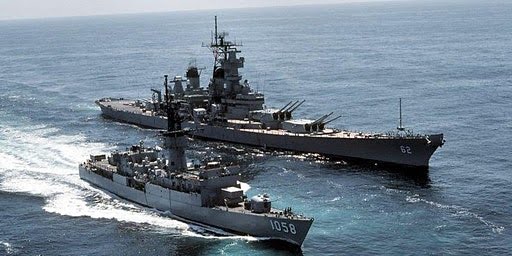
“US Navy Fleet Outlook, Trends & Supply Chain Implications” – LA Chapter
“US Navy Fleet Outlook, Trends & Supply Chain Implications”
Presenters:
Andrei Grskovic, Partner, Defense & Government Services, Oliver Wyman Aerospace
Mark Mangano, Principal, Defense & Government Services, Oliver Wyman Aerospace
U.S. Navy shipbuilding expected to reach construction levels not seen since the Cold War era given stated force-level goals of a 355-ship fleet (up to ~500 including unmanned), compared to the 296 in-service vessels today. Increased importance on naval operations in the face of near-peer tensions, most notably China and Russia, driving a structural shift in fleet architecture, with an emphasis on Distributed Maritime Operations and subsurface warfare superiority, driving a redistribution of the fleet’s overall composition – smaller proportion of larger ships (e.g., large surface combatants), a larger proportion of smaller ships (e.g., amphibious, logistics/support, frigates) and a third tier of optionally/unmanned surface vessels – and a prioritization of submarine recapitalization (e.g., Columba-class).
Significant Congressional support for shipbuilding reflected by the fact that appropriated funds have consistently outpaced Administration’s requests over the past decade. However, despite such support, force level goal attainment requires future funding to exceed peak historical appropriation levels seen during the 1980s, a continued reduction in aging vessel decommissioning efforts and associated sustainment funding, and finally, significant investment towards eliminating manpower limitations.
All of this in the backdrop of a diminishing supplier base – ~50% of supply chain labor and ~70% of suppliers lost since the 1980s – and pronounced maintenance delays exceeding 2,000 days – reflecting dry dock and labor capacity constraints, dry dock/homeporting mismatches and underinvestment at both public and private yards.
We will explore the future direction of the fleet, funding outlook and risks, market capacity, prevailing trends and associated implications on the incumbent and emerging shipyards, supply base and sustainment vendors.
Presenters
Andrei Grskovic is a Partner in the Aerospace, Defense & Government (AD&G) practice of Oliver Wyman Aerospace focusing primarily on commercial due diligence and strategy advisory services. Andrei has over a decade of aerospace & defense experience having advised on ~250 engagements supporting leading private equity, institutional investors and strategics. Relevant experience includes: commercial, vendor and operations due diligence, market sizing & outlook development, business plan development and forecasting, growth strategy development & M&A targeting/screening.
Andrei’s extensive aerospace & defense commercial diligence and strategy advisory work has spanned the full spectrum of segments from the civil original equipment supply chain (e.g., machining, castings/forging, surface treatments, cargo equipment, etc.) to aftermarket (e.g., MRO, distribution, USM, PMA, painting, engineering services, etc.) and airport services (e.g., FBOs, passenger/cargo handling, ULD leasing, Ground Support Equipment, etc.) to naval shipbuilding and sustainment, defense electronics (e.g., embedded systems, avionics, RF, etc.), land vehicles, unmanned systems, training & simulation and C5ISR to law enforcement and safety equipment.
Prior to Oliver Wyman, Andrei co-led the AD&G private equity practice at PwC Strategy& and was a senior leader at a boutique AD&G consulting firm in Boston, MA. Andrei has his B.Sc in Business Administration and Economics from Boston University.
Mark Mangano is a Principal in the Aerospace, Defense & Government (AD&G) practice of Oliver Wyman Aerospace focusing primarily on commercial and vendor due diligence, as well as strategy advisory services. Mark has over a decade of experience covering the aerospace and defense sectors having advised on more than ~125 transactions totaling more than $22B in total enterprise value (TEV) in support of both private equity and corporate clients. Areas of expertise include Naval, Commercial & Recreational Shipbuilding, Land Vehicles (Tracked & Wheeled), Soldier Systems (Optics, Body Armor, Small Arms, Survivability Solutions, etc.), Training & Simulation, and Weapons Systems.
Mark was previously at PwC S& in the Deals Strategy practice, as well as a leading A&D strategic advisory boutique in Boston, MA. He started his career in investment banking at Oppenheimer & Co. and Renaissance Strategic Advisors in Washington D.C. Mark holds a dual degree in History (Civil War) and Economics from Connecticut College.